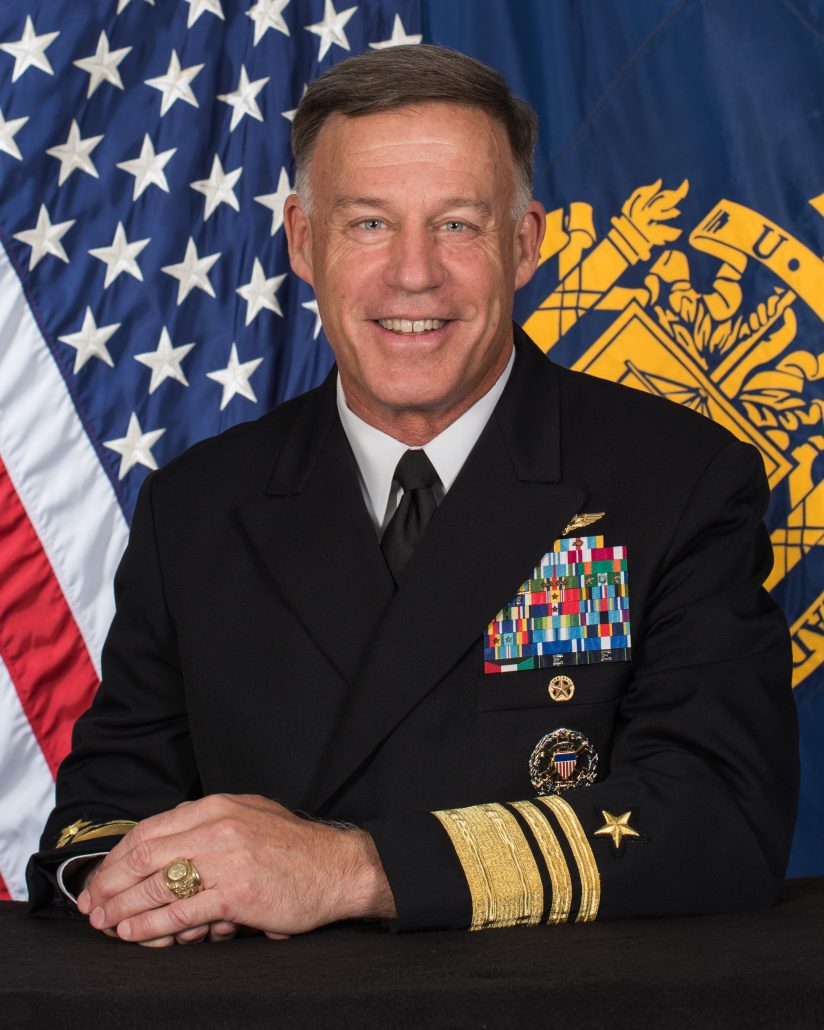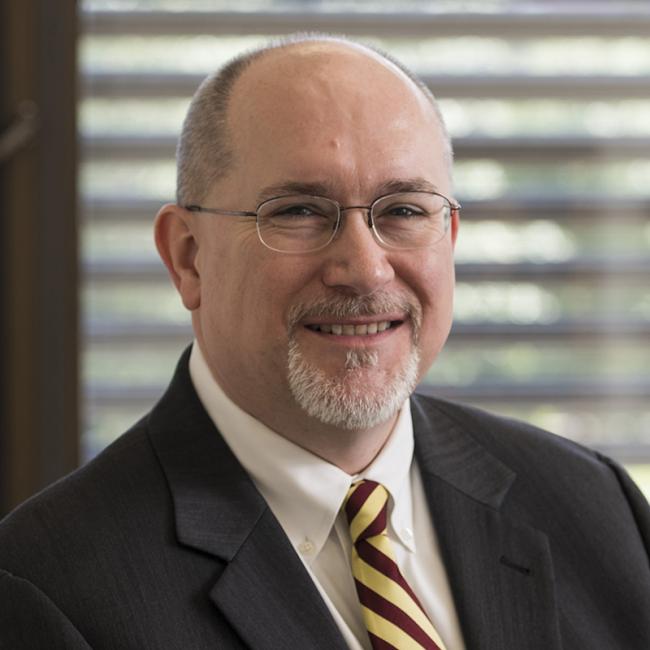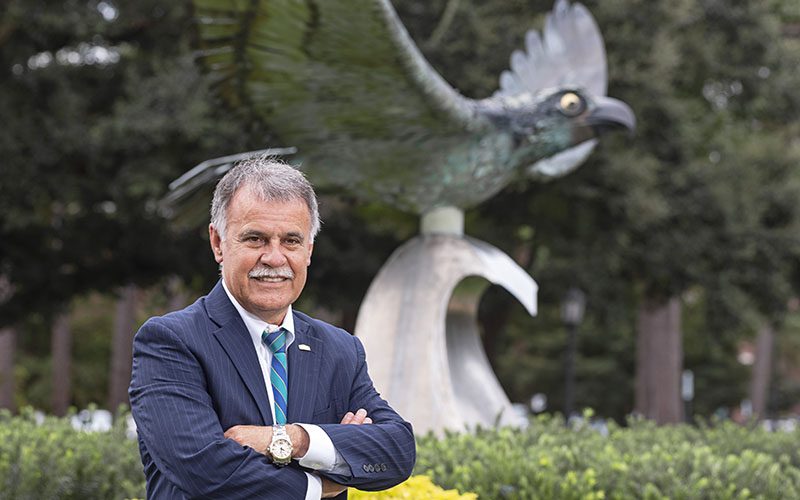Last Wednesday, it appeared that the search for Florida Atlantic University’s president might have escaped the politics that have roiled higher education in Florida.
FAU announced that the search committee had chosen three finalists. All have varied academic backgrounds. Vice Admiral Sean Buck is superintendent of the U.S. Naval Academy. Michael Hartline is dean of the business school at Florida State University. Jose Sartarelli was chancellor at the University of North Carolina-Wilmington from 2015 to 2022 and previously worked in the corporate world.


Two days later, however, things changed.
Ray Rodrigues, chancellor of the State University System, suspended the search. In a letter to Brad Levine, chairman of FAU’s board of trustees, Rodrigues noted “anomalies.” Rodrigues said he wanted time for the Board of Governors, which oversees the system, to investigate.
Rodrigues cited two matters. He alleged that the search committee had conducted a secret straw poll of the 62 applicants that might have violated the state’s open-meetings law. Rodrigues also said the search firm had given applicants a questionnaire that asked about sexual orientation. One applicant, Rodrigues said, had been asked if he were “queer.”
Levine responded a day later. In a letter to Rodrigues, Levine said the search committee had not known about the questionnaire, which he called not “warranted.” But Levine defended the search as being “conducted in a proper manner.” He wants to resume it “as soon as possible.”
So was Rodrigues’ intervention justified, or will politics decide who becomes president? Even before the letter, there was reason to believe that none of the finalists would be chosen.
This year, South Florida State College in Avon Park was choosing a president. The search committee had picked three qualified, experienced finalists.
Then Gov. DeSantis jumped in. He proposed that Fred Hawkins, a Republican state representative, get the job. Hawkins has no higher education experience, but he sponsored the bill that stripped Disney’s control over the land under Walt Disney World. DeSantis devoted a chapter of his autobiography to his battle with Disney.
Those three finalists withdrew. Hawkins became the only finalist. In June, the college’s trustees hired him.
Similarly, DeSantis engineered the hiring of former U.S. Sen. Ben Sasse as president of the University of Florida. Though the UF job seemingly would attract any number of qualified applicants, Sasse became the only finalist.
Like Hawkins, Rodrigues is a DeSantis ally. As a state senator, he sponsored many of the bills that have allowed the governor to reshape higher education. One revamped the tenure system. Another was the so-called Individual Freedom Act, which a federal judge called “dystopian.”
Critics might note an irony in Rodrigues’ letter. He and many other legislators exempted presidential searches from the Sunshine Law. That’s how Sasse and Hawkins emerged as the apparent winners with no notice.
FAU, however, repeated its procedure from the transparent search that produced John Kelly in 2014. The names came out, and the finalists were scheduled to speak on campus three times this week. The new law, though, does not allow the public to know the names of all those who applied.
As for the “queer” issue, DeSantis and Republicans in Tallahassee have targeted LGBTQ Floridians over and over. Could Rodrigues and the Board of Governors use that issue to invalidate the search? Possibly.
According to news reports, DeSantis encouraged State Rep. Randy Fine to apply for the FAU presidency. Like Hawkins, Fine’s qualifications are political, not academic. Many of his remarks have drawn strong criticism. Fine called a political opponent “a whore,” and he faces an investigation by the Florida Ethics Commission for misusing his office. In an editorial, the Palm Beach Post said Fine would be “a terrible choice.”
Yet two days after Fine didn’t make the list of finalists, a DeSantis ally unexpectedly suspended the search. When the South Florida Sun Sentinel called Fine to ask about this sequence of events, Fine hung up.
FAU released a statement Sunday afternoon noting the finalists’ “exceptional qualifications” and defending the search as “sound.” There was no further comment.
Delray’s ballot gets more crowded
Delray Beach’s election has become more crowded.
Two candidates joined Realtor Christina Morrison in filing paperwork to run for the Seat 3 city commission seat that Ryan Boylston is leaving because of term limits. Nicholas Coppola chairs the city’s code enforcement board and has a long record of community service. Anneze Barthelemy runs a nonprofit that helps foster families. She ran for the commission in 2017, finishing last in a field of four.
Former Commissioner Jim Chard already had filed for Seat 1, which Adam Frankel must leave because of term limits. The new candidate is Tennille DeCoste, who once was director of the city’s human resources department.
Boylston is running for mayor. Former Commissioner Shirley Johnson also has filed paperwork to succeed term-limited Shelly Petrolia. The election is March 19.
Commissioners to vote on Delray’s top tax rate
City commissioners will vote today to set Delray Beach’s top tax rate for the budget year that begins Oct. 1.
At roughly $6.50 for every $100,000 of assessed value, that would be another tiny decrease, as the commission approved last year. Most residents would pay more overall because home values have risen.
Petrolia, though, wants the rate to come down more. As she does every year, Petrolia noted that the city’s reserves are far above what municipal finance standards recommend. The city’s budget director said $10 million might be available for use in the operating budget.
During last month’s budget workshop meeting, Boylston said he wants to raise the minimum hourly wage for employees who have maintenance duties from $13 to $15. Maintenance is the topic most residents ask about, Boylston said. Raising the wage would cost about $300,000 per year.
Another big topic is the plan to shift money that the community redevelopment agency has been spending on nonprofit groups to the city budget. Those groups, among them the library and Arts Garage, operate on city property.
The Legislature soon may outlaw such spending by CRAs. In Delray Beach, that amounts to about $1 million a year. City Manager Terrence Moore said the shift will begin next year and be complete by the 2024-25 budget year.
Commissioners hold another budget workshop today.
Clint Moore overpass opens
Another step in the remaking of Interstate 95 happened two weeks ago with the opening of the new Clint Moore Road overpass in northern Boca Raton. The project, under which the state is extending toll lanes to Linton Boulevard, is set for completion this year. The work included the Diverging Diamond interchange at Glades Road.
Correction: In a recent post, I wrote that Moody’s Investor Services had rated Boca Raton’s revenue bonds AAA. The rating applies to the city’s special assessment revenue bonds.







